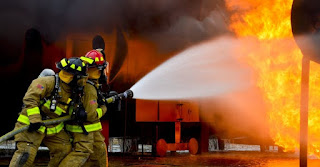Home Repair and Remodeling Insurance - If You Are Liable Under the HRRA, Your HRRA-required Insurance May Not Cover You
If you are familiar with the Illinois Home Repair and Remodeling Act (the HRRA), you know that the law requires home repair and remodeling contractors to carry certain minimum insurance, including the following:
"...public liability and property damage insurance in the amount of $10,000 per occurrence for home repair or remodeling not in conformance with applicable State, county, or municipal codes, unless the person has a net worth of not less than $1,000,000 as determined on the basis of the person's most recent financial statement, prepared within 13 months." (emphasis added).
There is a long line of cases analyzing what is and is not an "occurrence" in the context of a contractor's commercial general liability (CGL) insurance policy. That issue is beyond the scope of this post, but suffice it to say that it is a complicated and hotly contested area of the law, perhaps especially so in Illinois. Throw the HRRA into the mix, and you have the recent case of West Bend Insurance Company v. The People of the State of Illinois, Case Number 1-08-1693 (Ill. App. 1st District, May 27, 2010).
West Bend is actually a consolidated opinion of four lawsuits against a contractor, Father and Sons Contractors, Inc, by the Illinois Attorney General and three private homeowners under the HRRA and the Illinois Consumer Fraud and Deceptive Business Practices Act, among other claims. The contractor tendered defense to its insurer, West Bend. West Bend filed suit in all four cases seeking a declaratory judgment that it had no duty to defend or indemnify the contractor. The trial court granted West Bend's motion for summary judgment and the contractor appealed.
The contractor in this case had an endorsement in its CGL policy that covered "improper home repair and remodeling," limited liability to "'property damage' arising out of 'improper home repair and remodeling' - $10,000 per 'occurrence,'" and excluded "'improper home repair and remodeling' knowingly performed by the insured." (emphasis added).
The Appellate Court held that the complaints against the contractor did not allege any occurrences, but instead alleged "deliberate fraud and intentional acts of faulty workmanship;" and did not allege any "property damage," because that term in this context refers to damage to the property of others, not mere economic losses of the insured. Finally the Court held that the exclusion in the policy of "improper home repair and remodeling knowingly performed by the insured" bars coverage, since the complaints did not allege mere negligence by the contractor. For these reasons, the insurance company had no duty to defend or indemnify the contractor.
In other words, the contractor had the home repair and remodeling insurance required by the HRRA, but still was not covered. Contractors, check with your insurer and your attorney so you understand what your CGL policy does and does not cover in advance, so you are not hit with a surprise.
In other words, the contractor had the home repair and remodeling insurance required by the HRRA, but still was not covered. Contractors, check with your insurer and your attorney so you understand what your CGL policy does and does not cover in advance, so you are not hit with a surprise.
Nate Hinch is an attorney and partner at the law firm of Mueller, Reece & Hinch, LLC. He has offices at 404 N. Hershey Road, Suite C, Bloomington, IL 61704, and 809 Detweiller Drive, Peoria, IL 61615, and can be reached by phone at (309) 827-4055 and email at nhinch@mrh-law.com.


This is really quite informative blog such qualitative info I have never seen anywhere.Mondenet
ReplyDeletegood post but including some photographs will allow it to be improved.
ReplyDeleteInsurance Companies
This is really quite informative blog such qualitative info I have never seen anywhere.
ReplyDeletegarage doors spring tx
but thought that the latter at least might be useful to have on hand. water damage restoration erie
ReplyDeletehome city trung kính
ReplyDeletehttp://homecitytrungkinh.com.vn/
home city
http://homecitytrungkinh.com.vn/tong-quan-du-an-home-city/
chung cư trung kính
http://homecitytrungkinh.com.vn/mat-bang-can-ho-chung-cu-trung-kinh/
trung kính complex
http://homecitytrungkinh.com.vn/tien-ich-trung-kinh-complex/
thiet ke website gia re
https://www.facebook.com/Ba-Xo%C3%A1y-Thi%E1%BA%BFt-k%E1%BA%BF-website-gi%C3%A1-r%E1%BA%BB-1038205619601916/
ReplyDeleteA contract protects both parties, so any contractor who says you do not need a contract may be a contractor you show to the door.
contractors Little Rock AR